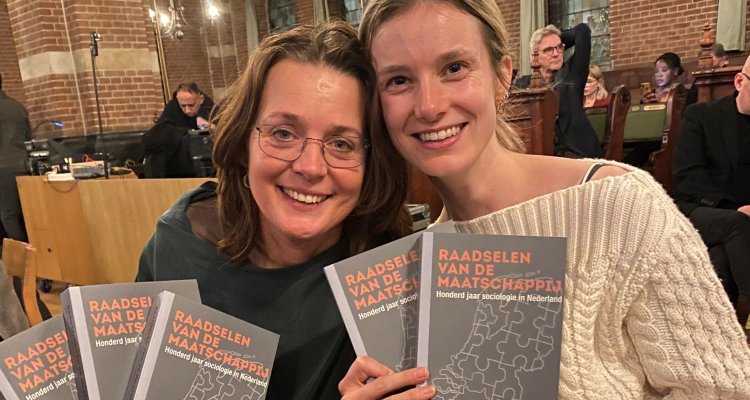
News
Sociological sustainability crucial in current transitions
Sustainability has gone from a subdiscipline to an integral theme within sociology and plays a crucial role in current transitions. So say five Wageningen sociologists at the presentation of the book "Riddles of Society," published in honor of the centennial of Dutch sociology.
The five sociologists, Anke Brons, Hilje van der Horst, Yolie Michielsen, Barbara van Mierlo and Sigrid Wertheim-Heck, wrote a chapter in this book. It deals with the past, present and future of environmental sociology: ‘sociological sustainability’. In it, the five argue how sociological input into the sustainability debate can do justice to the complexity of social change. "Sociology is a discipline well equipped to make sense of the heterogeneity of causes and effects and interdependencies that characterise sustainability issues," argues Sigrid Wertheim-Heck. "After all, sociology emerged in response to major, sweeping developments such as modernisation, capitalism and secularisation. At the same time, sociology faces the challenge of making this contribution more explicit and strengthening it."
Two tasks
The five authors further argue that there are two parallel tasks for sociologists to realise a greater contribution of sociology to sustainability issues. Not only in the Netherlands but also internationally:
- We can no longer afford to consider sustainability issues as a separate domain -specialisation within sociology; sustainability is a topic that needs to be addressed integrally, as a central theme of sociological research.
- Sociology has a crucial role in interpreting and guiding sustainability transformations: interpreting why problems are intractable, realising diversity of options and anticipating possible consequences of actions. In short: how to move a society toward an inclusive, sustainable normal.
Book: one hundred years of sociology
The book "Riddles of Society" examines the fruits of one hundred years of sociology in the Netherlands. The authors are all Dutch sociologists of different generations and various universities and institutes. They were asked about the harvest of their subfield, but also about the social impact of the accumulated knowledge. What have sociologists contributed to thinking about radical transformations in society, such as individualization or secularization? What is their interpretation of current challenges of migration, climate, educational inequality? How did their insights shape policy and social debate? And: What can we expect for the future?